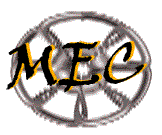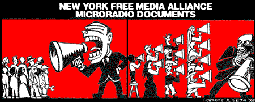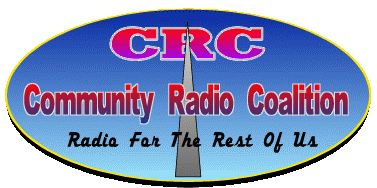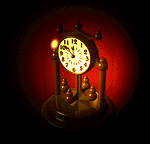 |
(AND NOTHIN' ON)" |
Why do most radio stations
leave me feeling like a
"Stranger In A Strange Land"?
Because they can.
Competition between
radio station owners
used to prevent
too many ads or
overly bland or
insulting programming.
You could turn the dial
to "the other guy".
Then the 1996 Telecom
Act allowed a huge
merger frenzy so that ...
Now "...
we
are
the Other Guy",
says George Sosson,
Clear Channel Inc.
senior vice president.
|
"there's no room for more stations" and 'there's more diversity than ever' : |
FCC Commissioner Gloria Tristani said,
"less than 3% of radio stations are
minority owned ...
Black-owned stations dropped 26%
and
Hispanic-owned stations dropped 9%
between 1995 and 1997."
35% of all advertising revenue
last year went to the top three
[soon to be two] station owner groups:
- Chancellor Media/Capstar,
- Clear Channel/Jacor Communications
- CBS Radio/Infinity Broadcasting
(Chancellor became "AMFM")
(merging with AMFM)
Before the 1996 Telecom Act that
allowed these mergers, the largest
radio chain owned only 38 radio stations.
When the latest AMFM/Clear Channel
merger is complete, they will dominate 830 stations.
" ...common for two or three companies
to own 80% to 90% of the radio ad revenues
in a market.
In Rochester, N.Y., for example,
14 stations owned by CBS, Jacor and Entercom
held 94% of the radio ad revenues in 1997,
according to Duncan's American Radio, a research firm"
|
![]()
If you want
to keep updated
SUBSCRIBE TO LPRS-E-ZINE
(FREE)![]()
![]()
|
 |
| THANK-YOU for
contacting your Senator/Congressperson. Thank-you for reading all this
|
|
| Contact
Information
for Congress HERE |
DEADLINE IS NOW 1/20/2000
FREE
ENTERPRISE
RESTORE
COMPETITION
Please call your representatives
in Congress and the Senate
and urge them to support the Low Power Radio Service that would open thousands of new frequencies on the FM band for people like you to be heard.
Lookup
Your Congressmen
and Senators
by ZIP Code HERE
Unrepresentative
Radio is
Taxation
Without
Representation
|
|
Subscribe for updates or |
A
stable society
is
an inclusive
and
just
society.
A healthy democracy hears from everyone, not
just
the
beautiful or profitable people.
WHY
doesn't the
"Almighty
Market"
Serve
Everyone?
Media is the
lifeblood
of
a Free
Society",
|
|
Radio Station
Ownership Changes
(Less decision makers
... for more stations)
| 1997 | 5,222 | owners controlling | 10,246 stations |
| 1998 | 4,241 | owners controlling | 10,636 stations |
| # of owners
DOWN |
18.7% | # of stations
UP |
03.8% |
|
LPRS Discussion prejudices can destroy this opportunity if we don't act! |
ACTION:
What
you can do to solve the problem of an
unrepresentative radio dial.
![]()
"Information is the currency of democracy.",

Full Index of documents
on this web site as
well as the hundreds
of links to the outside
world.
SELECTED LINKS:
- Frequently Asked Questions
- What's Wrong With Radio: Beancounters Rule Radio...
- Solutions Summary.
- Bonior Letter in support of the Low Power Radio Service.
- Classical Music is commercially viable (and therefore a violation of the founding reasons for the Corporation for Public Broadcasting).
- Television & Entertainment column on the apparent political motivations masquerading as technical arguments against the Low Power Radio Service.
- Low Power Radio Service summary and discussion. Political corruption and racism may be the ultimate reason the anticompetitive actions of those seeking to monopolize the radio dial may succeed!
-
 discussion.
discussion. -
 discussion.
discussion. - Consolidation ... Its not just about having all the money ... its about control
Abstract to "Public Radio in the United States: Does it correct market failure or Cannibalize Commercial Stations?"
Read also on why the CPB is oft called the Corporation for Petroleum Broadcasting








- Radio Will Never Be The Same
- Dead Air: When the FCC destroys "pirate" community radio, it also destroys the community
- KIND Radio: An example of a "pirate" radio station helping the community


- FCC Commissioner Tristani "Keeping the local in local radio"
- FCC Commissioner Tristani," Broadcast Views"
- FCC page on the Low Power Radio Service
- FCC Chairman Kennard
- Kennard's Speech to NAB re: LPRS (25 min in) (Note] Very interesting that the RealAudio recording of his speech was cut off RIGHT AT THE LPRS comments!
Duncan's Radio Report...





